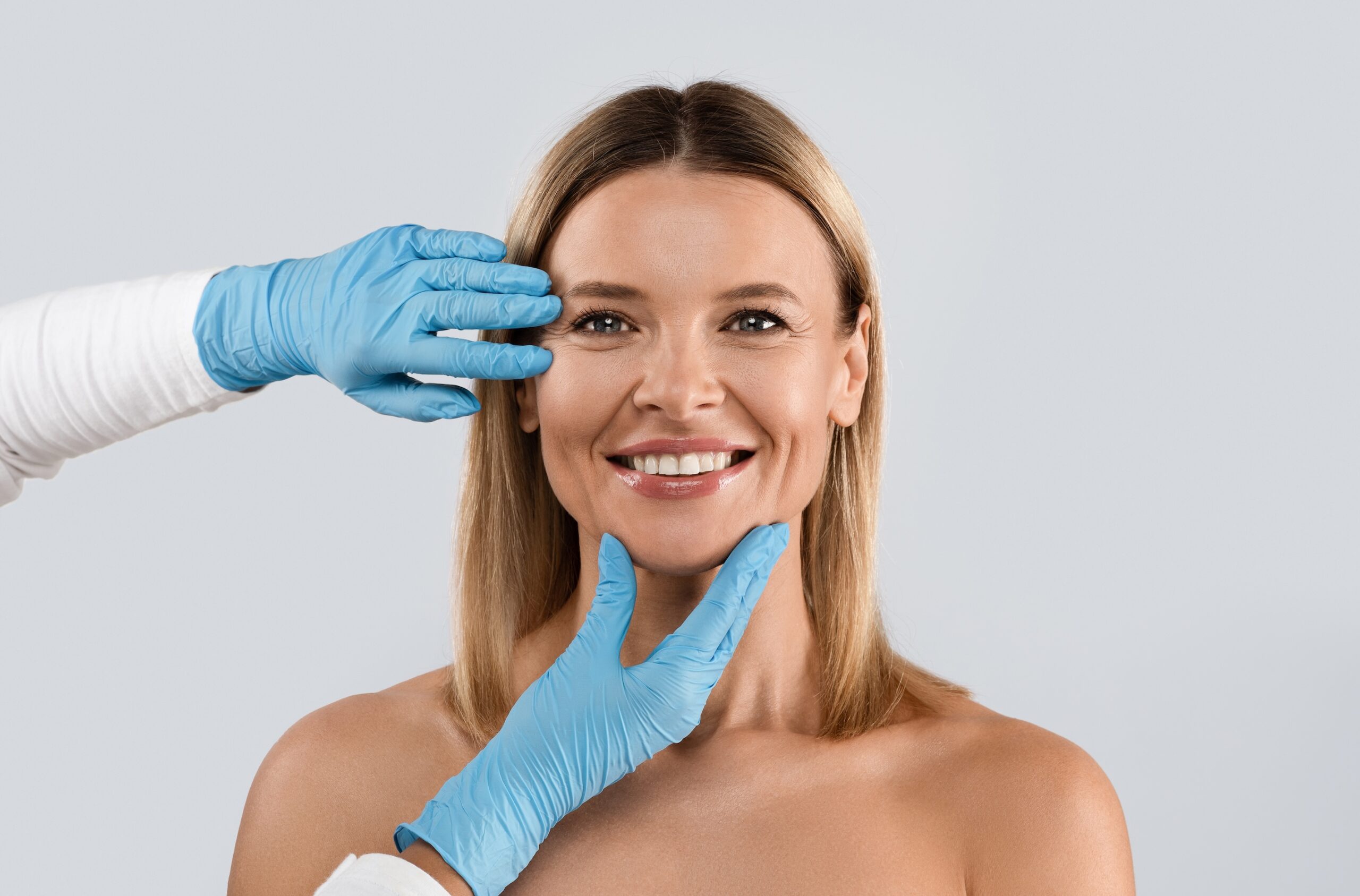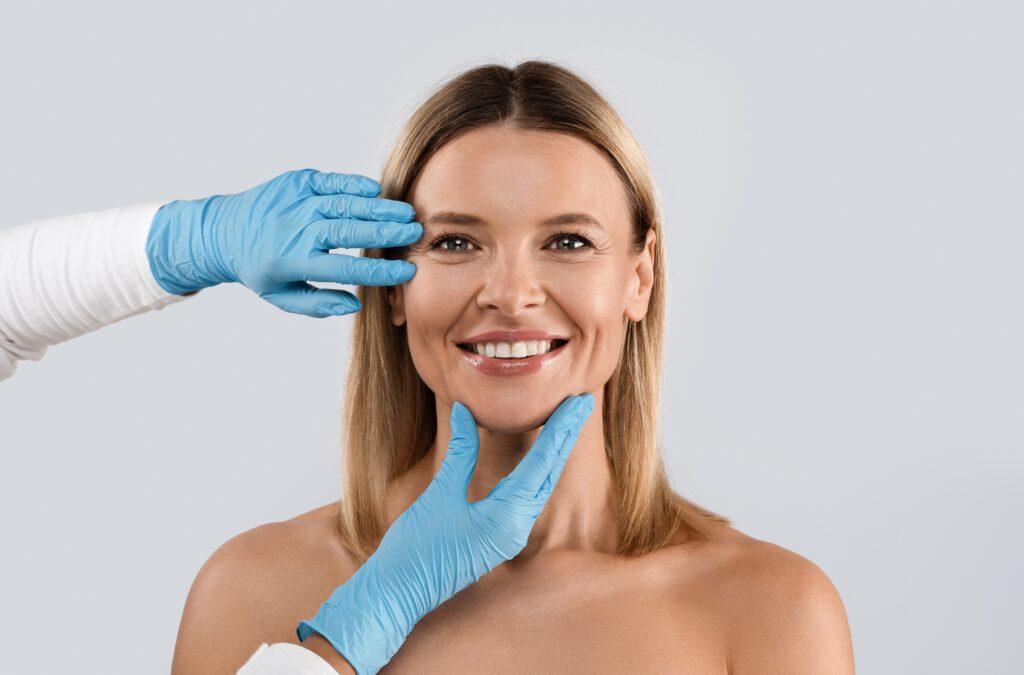Laser skin resurfacing is a popular cosmetic procedure that helps improve skin texture, reduce facial wrinkles, and even out tone. It’s often used to treat skin conditions like acne scars, age spots, and sun damage. Before going through this cosmetic treatment, it’s important to prepare your skin the right way. Taking the time to follow proper steps helps reduce recovery time and supports the healing process.
This guide explains what to do before your appointment to get the best results.

How to Prep Your Skin for A Laser Skin Resurfacing Procedure
Understand What Laser Skin Resurfacing Does
Laser skin resurfacing works by using focused laser energy to remove damaged layers of skin. It also encourages the growth of fresh skin cells and boosts collagen, which helps tighten sagging skin. Laser treatments can target concerns like uneven tone, stretch marks, skin scars, and large pore size.
There are different types of laser technology used, including ablative and non-ablative lasers. Ablative lasers remove the outer layer of skin, while non-ablative lasers heat the deeper layers without peeling the top layer. Both use laser light to trigger skin repair and collagen production. Your provider will choose the right method based on your skin type and concerns.
If you’re considering this treatment, it’s also a good idea to ask about the CO2 laser resurfacing price, especially since this type of ablative laser is commonly used for deeper wrinkles and scarring. Understanding the cost ahead of time helps you plan for both your appointment and any follow-up care you might need.
Schedule a Consultation With a Skin Specialist
Before starting any cosmetic procedures, it’s important to speak with a licensed professional. They will assess your skin conditions and medical history to decide if you’re a good candidate for the treatment. During this visit, they may also check for active breakouts, cold sores, or signs of sun damage.
If you’ve had issues like cold sores in the past, the doctor may prescribe antiviral medication ahead of time. This can help prevent flare-ups triggered by the heat from the laser energy. Honest answers and open communication during the consultation help build a safe and effective plan.
Protect Your Skin From the Sun
Sun exposure can interfere with the healing process and increase the chance of skin irritation. It also raises the risk of hyperpigmentation after the procedure. Too much sunlight before treatment can delay your appointment, especially if the skin is sunburned or tanned.
To protect your skin, avoid direct sun for at least two weeks before your appointment. Use a broad-spectrum sunscreen with SPF 30 or higher, and reapply it regularly when outdoors. Wearing sunglasses and hats and covering your skin with light clothing can also help prevent more sun damage.
Take a Break From Harsh Skin Products
Many laser treatments make the skin more sensitive, so strong skincare products should be paused before the procedure. This includes retinoids, exfoliants, or anything with strong acids like AHAs or BHAs. These can irritate the skin and disrupt the healing process.
Instead, switch to gentle cleansers and moisturizers that support the skin barrier. If unsure which products are safe, your provider can give a list of what to stop using and when.
Hold Off on Other Cosmetic Treatments
Stacking treatments too close together can stress the skin. It’s a good idea to avoid chemical peels, facials, or waxing before your laser procedure. These treatments can weaken your skin’s natural defenses and slow down recovery.
For best results, space out all cosmetic procedures. Most providers suggest waiting two to four weeks between treatments to give your skin time to recover and strengthen.
Focus on Hydration and Nutrition
Healthy skin heals faster. Drinking plenty of water each day helps keep your skin plump and supports collagen production. Aim for at least eight glasses of water daily in the days leading up to the procedure.
A diet rich in fruits, vegetables, and healthy fats supports the skin’s repair process. Foods that are high in antioxidants, like blueberries, spinach, and nuts, help reduce inflammation and improve recovery time. These nutrients also help boost the skin-tightening effects of the treatment.
Avoid Smoking and Alcohol
Smoking lowers blood flow to the skin and delays healing. It can also interfere with how well your skin responds to laser energy. Try to stop smoking at least two weeks before and after the procedure.
Alcohol dehydrates the body and can increase redness or swelling. Limiting alcohol during the week of your treatment helps keep the skin balanced and makes recovery more comfortable.
Take Medication as Directed
Some people may need to take antiviral medication before treatment, especially if they’re prone to cold sores. Others might be prescribed antibiotics to prevent infection. These medications are usually taken a few days before and after the procedure.
Prepare a Clean Recovery Space
Laser treatments often come with a short recovery time, especially if deeper layers of skin are treated. Some people experience redness, peeling, or mild swelling. To stay comfortable, prepare a quiet, clean space at home with soft towels, pillows, and the skincare items your provider recommends.
Plan ahead so you won’t need to go out right after the treatment. This gives your skin time to calm down and makes it easier to care for it properly.
Rest the Night Before
Getting enough rest before the procedure helps your body handle the stress of treatment. Sleep allows the skin to repair itself and lowers inflammation. A full night of sleep also helps you feel more relaxed and ready.

How to Prep Your Skin for A Laser Skin Resurfacing Procedure
Avoid staying up late or stressing out the night before. A calm and rested body is better prepared for the healing process that follows laser resurfacing.
Final Thoughts
Proper preparation makes a big difference in how well your skin heals after laser resurfacing. Protecting your skin, following your provider’s advice, and taking care of your health all help support better results. Simple steps before treatment lead to smoother, healthier skin. Always give your skin the care it needs before any cosmetic procedure.

fashionabc is a fashion technology platform, comprising a digital directory and various other digital tools and supply chain solutions for the fashion industry ecosystem, that focus on ethical fashion and sustainability. We are building inclusive digital transformation tools for fashion professionals who are willing to take steps towards a more sustainable ethical fashion industry, by adopting AI and DLT blockchain technology.
* building digital profile and IP solutions for fashion businesses
* tackle issues such as provenance and counterfeit in supply chain
* contribute to the construction of a meritocratic ethical fashion industry which is certified and part of the circular economy











